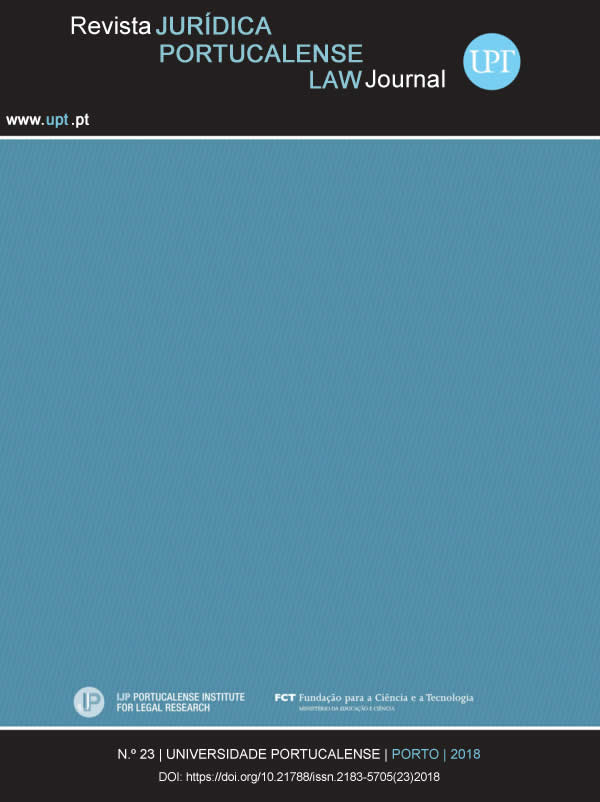Analysis of jurisdiction under the United Nations convention on the law of the sea: an expansionist vocation?
Abstract
A proliferação dos Tribunais Internacionais lançou um novo debate sobre o papel da jurisdição, em especial, do conflito de jurisdições. Resultado dessa proliferação, alguns Tribunais têm seguido a tendência de expansão da própria jurisdição, sendo exemplo de tal fenómeno a expansão da jurisdição por via dos artigos 288.º/2 e 293.º da Convenção das Nações Unidas sobre o Direito do Mar (pelos Tribunais da Convenção, no contexto de disputas non-Unclos) e, por outro lado, a expansão da jurisdição do Tribunal de Justiça da União Europeia (através da apropriação da competência dos Estados membros). Será o direito europeu passível de restringir o desenvolvimento do direito internacional? O caso Mox Plant foi, neste contexto, o primeiro a suscitar questões sobre a jurisdição e o direito aplicável no âmbito da CNUDM, sendo, por isso, manifestação da afirmação, pela União Europeia, da autonomia do seu Direito. O que tem preocupado a Doutrina é, assim, a possibilidade de fragmentação processual do direito do mar (relativamente aos modos de escolha de resolução de litígios).
Downloads
Published
How to Cite
Issue
Section
License
Authors who published in the journal agree to the following terms:
- The Authors grant the Journal the right of first publication, and other non-exclusive publishing rights, licensed under the Creative Commons Attribution License which allows the sharing of work with recognition of its initial publication in this journal.
- Authors are able to take on additional contracts separately, non-exclusive distribution of the version of the paper published in this journal (ex .: publish in an institutional repository or as a chapter in a book), with an acknowledgement of its initial publication in this journal.
- Authors are permitted and encouraged to post and distribute their work online (eg .: in institutional repositories or on their website) at any point before or during the submission process, as it can lead to productive exchanges, as well as increase the impact and the citation of published work (See The Effect of Open Access).
RJP does not apply submission, publication or any other fees of any nature. Its articles are open access, with the goal of disseminating scientific knowledge and the debate of legal topics in the area of Legal Sciences.






